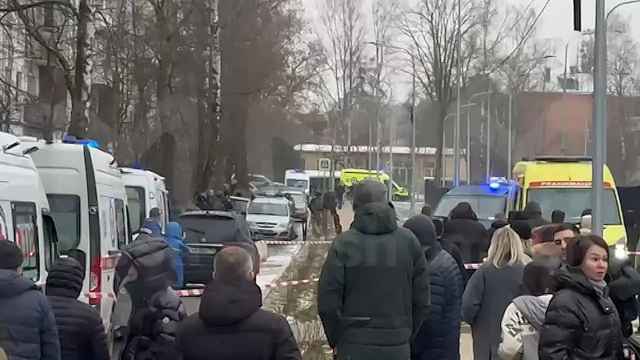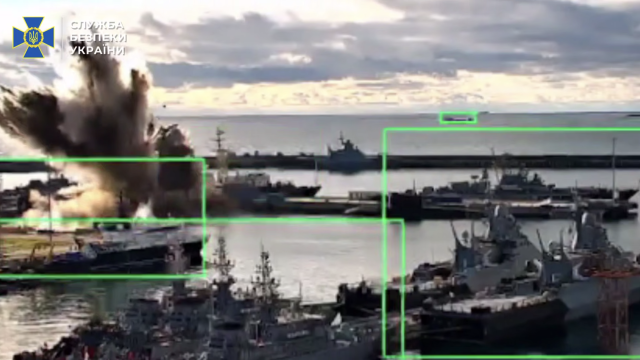The deployment of short-range missiles in western Russia does not violate any international agreements, the Defense Ministry said Monday.
The terse ministry statement, which was carried by Russian news agencies, came in response to the German daily Bild's report that Russia had deployed the short-range Iskander missiles to its westernmost Kaliningrad exclave on the Baltic Sea. The territory — which borders the NATO and the European Union member nations of Poland and Lithuania — is geographically separate from the rest of Russia.
The ministry spokesman, Igor Konashenkov, would not specify where the missiles have been stationed, saying only that "specific areas of the Iskander missile systems' location in the Western Military District do not violate any international agreements." The Western Military District includes most provinces in western and northwestern Russia, including the Kaliningrad region.
Lithuania was quick to express concern.
"I am worried about signals that Russia is about to modernize missile systems it has deployed in Kaliningrad," Lithuanian Defense Minister Juozas Olekas told reporters. "Further militarization of this region, bordering the Baltic states and NATO, creates further anxiety, and we will be watching the situation there closely."
Russia has threatened for years to deploy the Iskander missiles, which are capable of carrying conventional or nuclear warheads, to the Kaliningrad region as a counterbalance to the U.S.-led NATO missile defense system. Moscow sees the missile shield as a threat to its nuclear deterrent.
The Iskander missile, which has a range of up to 500 kilometers, or about 300 miles, travels at hypersonic speeds that make it very difficult to intercept and is capable of hitting targets with a precision of a few meters. It was first used in action in Russia's 2008 war with Georgia.
While the Defense Ministry stopped short of acknowledging the deployment of the Iskander missiles to the Kaliningrad region, Izvestia reported Monday that they had already been stationed in the area for more than a year.
Izvestia quoted Viktor Zavarzin, a deputy head of the defense committee in the State Duma, as saying the Iskander was needed to counterbalance NATO forces in Europe, including U.S. tactical nuclear weapons.
"We are not threatening anyone. These are defensive systems," Zavarzin said, according to the newspaper.
Relations between Moscow and the West have been tense amid disputes over the U.S. missile shield, Russia's human rights record and, most recently, Ukraine, where hundreds of thousands of demonstrators were protesting the Ukrainian president's move to ditch a pact with the EU in favor of closer ties with Russia.
A Message from The Moscow Times:
Dear readers,
We are facing unprecedented challenges. Russia's Prosecutor General's Office has designated The Moscow Times as an "undesirable" organization, criminalizing our work and putting our staff at risk of prosecution. This follows our earlier unjust labeling as a "foreign agent."
These actions are direct attempts to silence independent journalism in Russia. The authorities claim our work "discredits the decisions of the Russian leadership." We see things differently: we strive to provide accurate, unbiased reporting on Russia.
We, the journalists of The Moscow Times, refuse to be silenced. But to continue our work, we need your help.
Your support, no matter how small, makes a world of difference. If you can, please support us monthly starting from just $2. It's quick to set up, and every contribution makes a significant impact.
By supporting The Moscow Times, you're defending open, independent journalism in the face of repression. Thank you for standing with us.
Remind me later.





